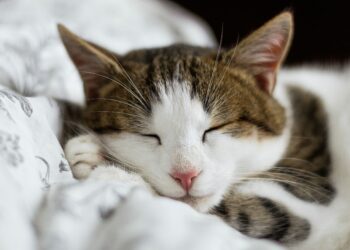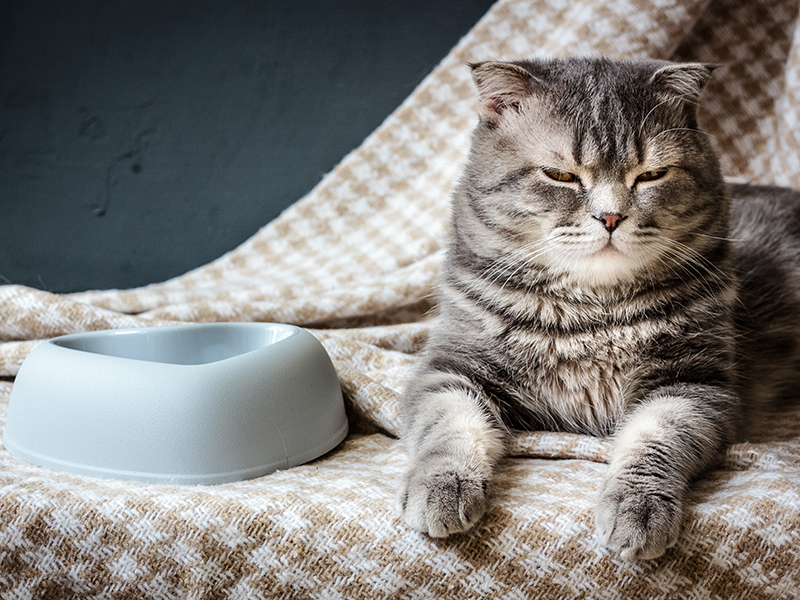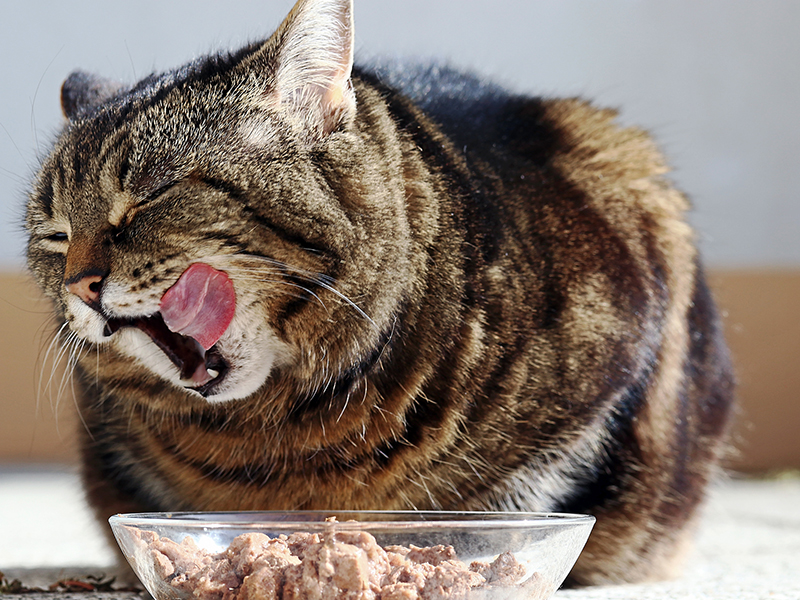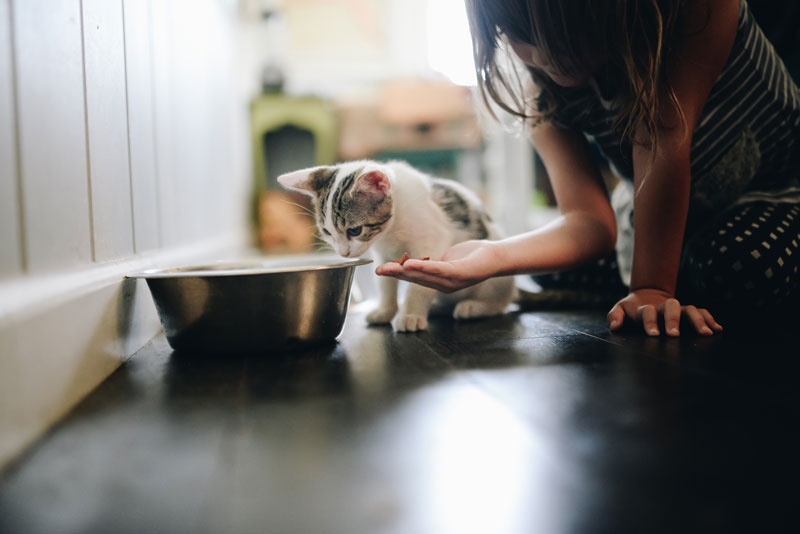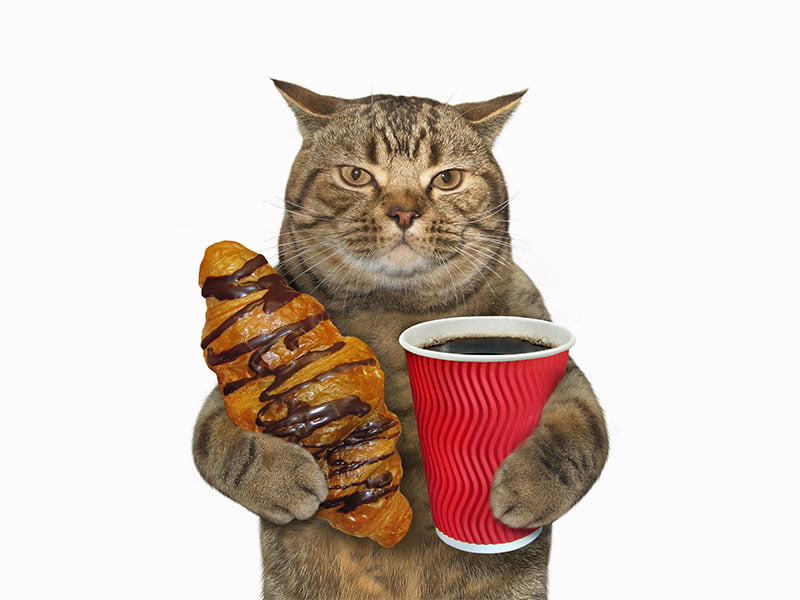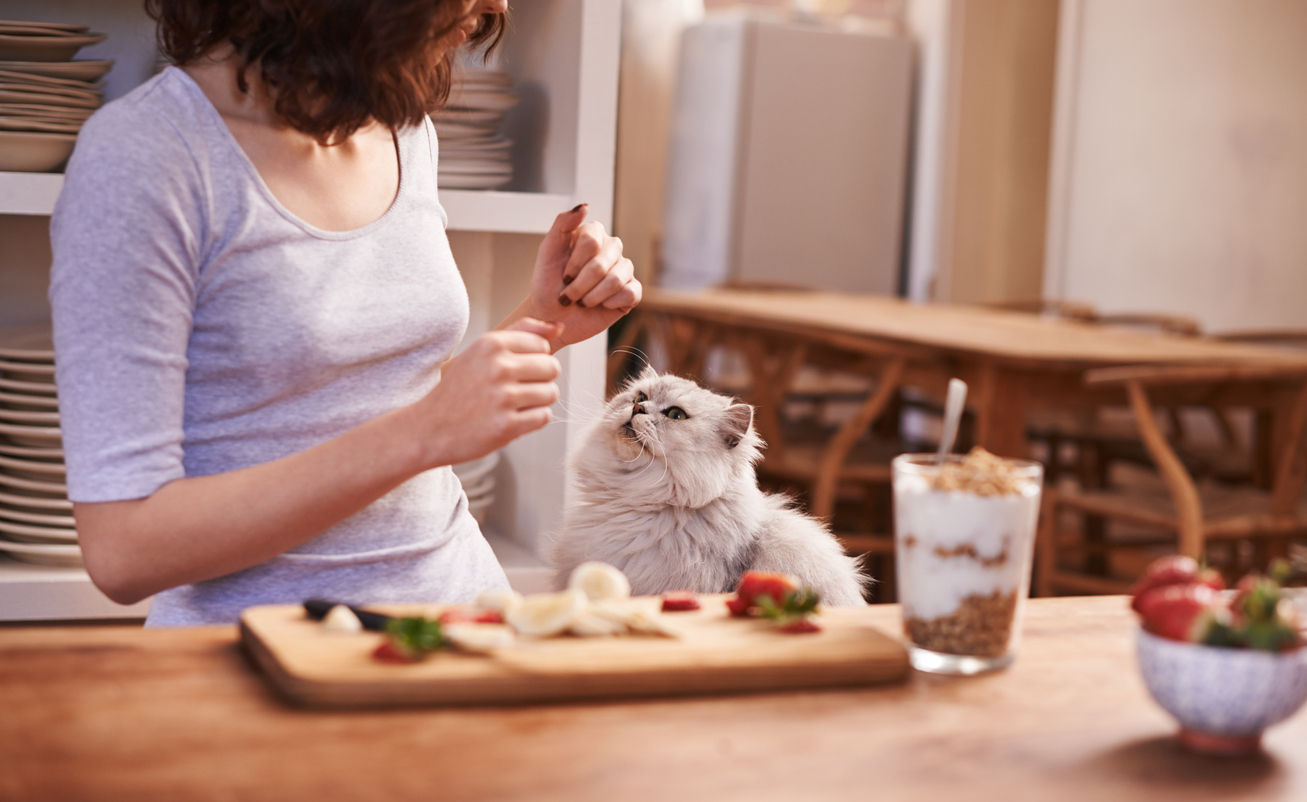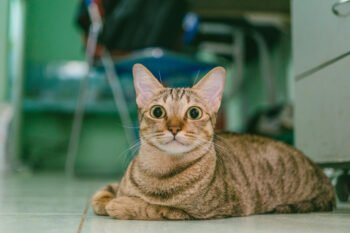Cats have a reputation for being particular about their diets, because they like their favorite foods served at just the right time and place.
If your cat quits eating, however, your swift action is critical, says Dr. Marla J. McGeorge, a veterinarian who runs a feline-only practice in Portland, Ore. “If your cat doesn’t eat for more than a day, it should go to the veterinarian,” she advises. “It doesn’t take very long for cats to develop a liver disease from not eating.” Liver failure occurs when fat accumulates in the liver due to a lack of protein.
Common Problems
Recognizing the typical reasons cats stop eating is a first step in protecting and helping your kitty. Your cat’s loss of appetite could be caused by one of these issues:
- Respiratory infection The ability to smell is a trigger for your cat to eat, says McGeorge. If your kitty sneezes, suffers from watery eyes and sounds congested, it probably won’t show enthusiasm for its dinner.
- Nausea If your cat frequently licks its lips, approaches the food dish, then backs away, it’s likely nauseated, says McGeorge. It’s difficult to tell if your cat has eaten something that upset its stomach or if it suffers from liver disease or other illnesses that cause nausea. Your veterinarian might order laboratory tests that will help clear the mystery, says McGeorge.
- Pain or trauma It’s a good idea to examine your cat for wounds or injuries, says Dr. Josie Thompson, a veterinarian who runs a cats-only clinic in Walnut Creek, Calif. The resulting pain or underlying infection could understandably decrease your cat’s hunger.
- Ingestion of foreign objects or poison Plants, string, ribbon and pieces of toys can become obstructions, possibly even poisoning your kitty.
- Age-related issues “Older cats are more at risk due to kidney problems, bowel disorders, heart disease and cancer,” explains Thompson. Older cats might suffer from arthritis, limiting their ability to bend to food bowls located on the ground. As cats age, such dental problems as abscessed teeth and bleeding gums can make eating painful.
- Change in food or location Changing your kitty’s food abruptly can lead to a loss of appetite, says Pam Johnson-Bennett, a Nashville-based cat behaviorist. Moving the location of your kitty’s food dish may also cause problems. For example, cats won’t eat if their dish is too close to their litter box. Your cat will also avoid meals if it feels threatened by another animal in a multi-pet household.
- Household changes The addition of a new pet, the departure of your son or daughter for college, or a move can all affect your cat’s appetite. Pay special attention to your kitty’s food intake during such times of transition.
What You Can Do
If your cat isn’t eating, try to entice it with these four steps:
1. Heat the food. The aroma of warm canned cat food just might tempt your kitty. However, make sure you just add warm water instead of microwaving, cautions McGeorge. Microwaves can heat unevenly, and you risk scalding your cat’s mouth.
2. Offer food by hand. The attention you pay to your cat while you feed a few morsels by hand can make a difference.
3. Adjust for age. Consider soft food if your elderly cat has tooth issues. Elevate the food bowl if your kitty is arthritic.
4. Provide a safe, quiet location. Make sure your kitty is comfortable with the location of its food dish. Set up several feeding stations in a multi-cat household.
Your veterinarian remains your best resource when your cat quits eating. Some owners hesitate making the call, figuring their cat’s appetite might return or worrying they’ll make a veterinary visit for no reason. “The big message from me is to bring your cat in,” says McGeorge. “The best thing you can hear is your cat is fine.”

